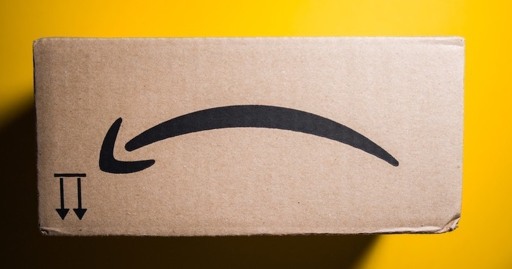Sounds to me like Amazon is reducing the value proposition of their product. For me, additional roadblocks to being able to enjoy something they way I want when I have paid for it reduces the value of the product itself.
For example, if a DRM free book in an standards compatible format costs $20, then the DRM version I can still download for offline viewing is worth $10. The DRM version I can’t download is now worth more like $1-$5 depending on how badly I would want to read it while still supporting the author.
And yes, ebooks from the major sellers aren’t worth much to me and I rarely rent (because you’re not really buying) them.
From them perhaps.

Here’s my purely capitalistic problem with Amazon:
A decade+ ago, I realized that major brands were using the site as their outlet store. I’d buy a pack of socks, and they’d be hideously deformed. I’d buy a few pants for work, one pair would be too small, one too large, and one would fit just right. I’m not fucking Goldilocks.
The final straw for me was when my coffee maker broke. I ordered a new one via same day shipping, which at the time had a minimum order of something like $50. The coffee maker did not cost quite enough, so I added something random to the order so that my same day shipping would be free. Ultimately, the coffee maker arrived late (i.e. not the same day) and the decanter was broken.
When I contacted Amazon about the issue, the agent said they could reship, but they wouldn’t send it same day so for that specific item it was going to take 3 - 5 days to arrive. They also tried to hassle me with a straight up return, telling me I had to take it to a UPS store, which at the time was 30+ minutes away.
Ultimately, I pulled a Karen and told them to cancel my Amazon Prime, which they did. Only problem is, I was 2 or 3 months into the year long subscription and assumed I’d get a pro-rated refund. I did not. When I got back in touch with customer service, they told me that Amazon adds up the value of the “free” shipping I received, the rental value of the movies and shows I watched on Prime, and the value of all the other services included with Prime and if that total exceeds the remaining value of the Prime subscription, then no refund.
They basically stole almost a year of Prime from me with no recourse.
Scum company. I got a lot of hate for saying this back in those days. But at least now, a decade+ later, people are finally starting to wake up. Not everyone, obviously. But at least I don’t get hateful responses and DMs quite as much as I used to.
Straight up theft. In a more functional government, there would be an agency with real teeth that you could report them to for that kind of behavior, with something other than fines-as-the-cost-of-doing-business.
One more reason not to buy ebooks from Amazon.
Buy elsewhere, or simple look up epubs and mail them to kindle
Where do others buy epubs? (Besides the library) In many cases my obscure authors only use Amazon.
I’ve used Kobo and Ebooks.com, and import into my Calibre library. I know some authors have a way to purchase directly on their site.
“your” ebooks. – You never owned them in the first place. And if buying isn’t owning, questionably acquired ebooks aren’t stolen.
Check if it’s available on your library website first, for the sake of the author.
I mean authors don’t see money anytime someone rents an ebook do they? Libraries just need to pay for licenses to the publisher annually from what I’ve read on reddit/Lemmy.
I can understand renting ebooks so that your library continues to fund a digital library, but if the book is available in paper form that doesn’t really benefit the author either.
Authors receive 25% of the ebook sale to a library in the US. Frequent lends will also influence future purchases made by the library.
https://janefriedman.com/what-do-authors-earn-from-digital-lending-at-libraries/
Libraries in Canada and the UK pay royalties for each lend.
https://societyofauthors.org/where-we-stand/public-lending-right-plr/





